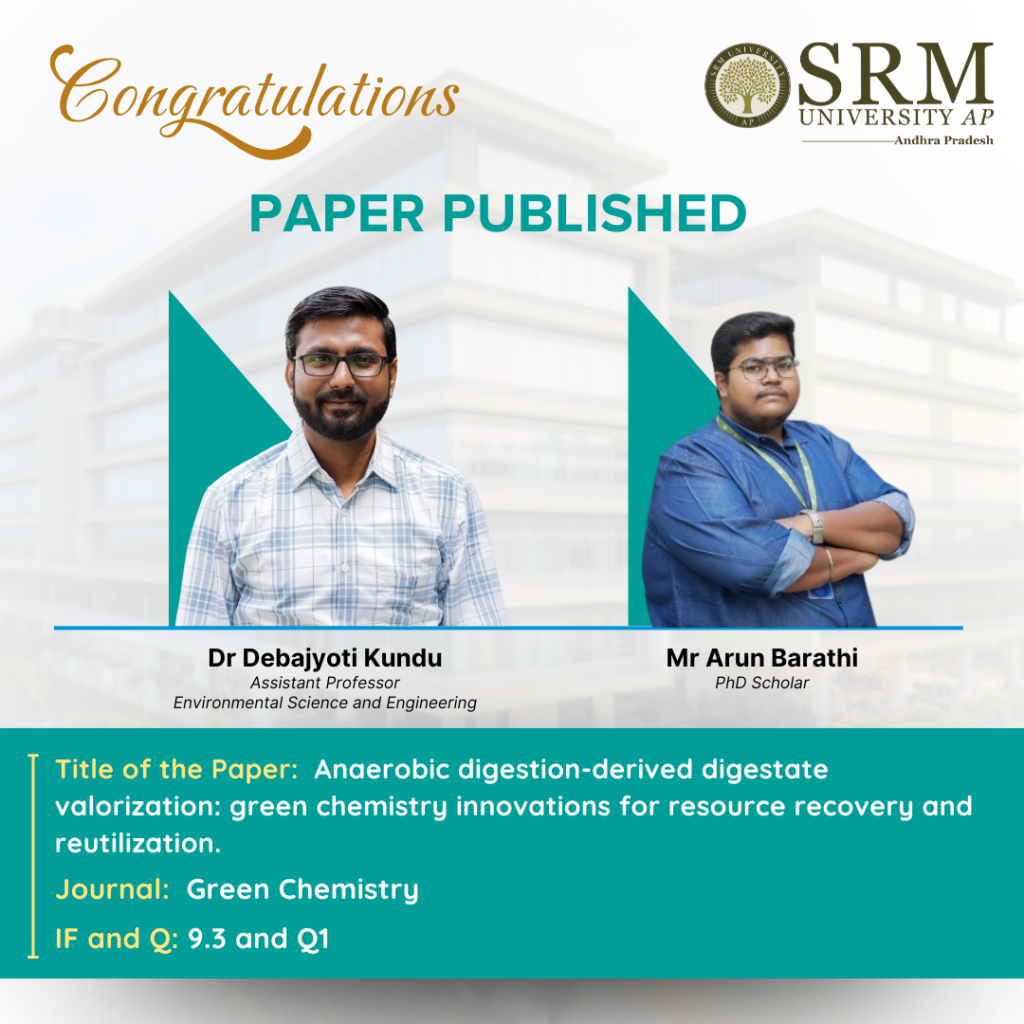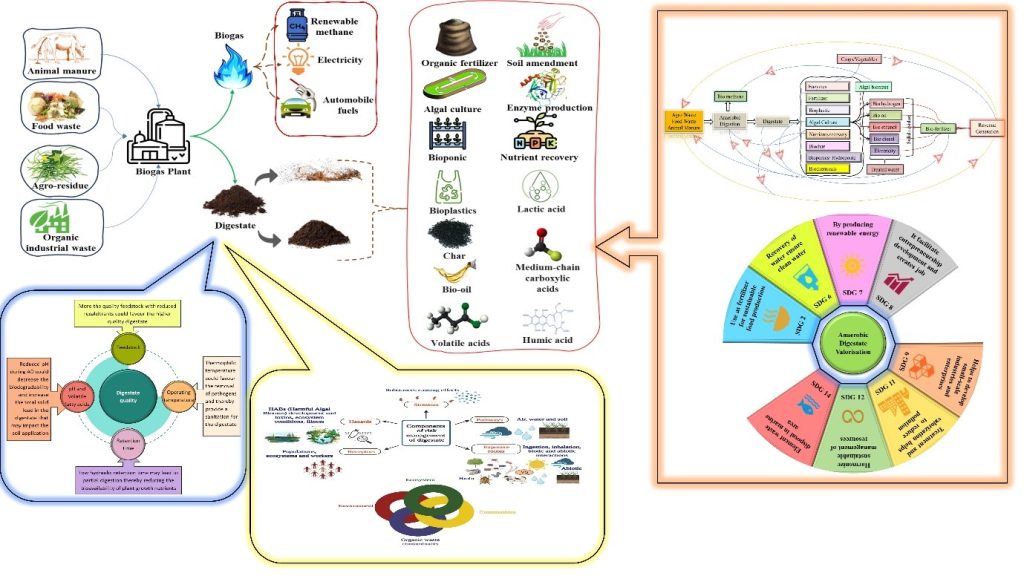
The proactive approach of Green Chemistry is driven by the cardinal rule of prevention rather than remediation of pollution. Analysing various eco-friendly ways to reduce waste, improve recycling, and help industries and farmers benefit from organic waste, Dr Debajyoti Kundu, Assistant Professor from the Department of Environmental Science and Engineering and his scholar Mr Arun Bharati, has published a paper titled “Anaerobic digestion-derived digestate valorization: Green chemistry innovations for resource recovery and reutilization”, in the Q1 journal Green Chemistry having an impact factor of 9.3.
Their research looked into eco-friendly ways to turn the bi-product of anaerobic digestion – digestate into valuable products like organic fertilisers, chemicals, and even ingredients for making plastics. The team also explores how to recover nutrients like nitrogen and phosphorus from it.
Abstract
Anaerobic digestion (AD) is a sustainable technology that converts organic waste into biogas, producing digestate as a by-product. This review investigates innovative strategies for digestate valorization through green chemistry approaches, emphasising its transformation into valuable resources such as biochar, bio-based polymers, and high-value chemicals like volatile fatty acids and humic substances. Additionally, the study explores nutrient recovery techniques like ammonia stripping and struvite precipitation. Through techno-economic and life cycle assessment perspectives, the work promotes digestate reutilization within a circular bioeconomy to enhance environmental sustainability and support net-zero goals.
Practical Implementation/ Social Implications of the Research
The research offers practical solutions for managing the large volumes of digestate generated in biogas plants. By converting digestate into biofertilisers, biochar, and industrial chemicals, we reduce the environmental burden of waste disposal and create economic opportunities for rural and urban stakeholders. These innovations support sustainable agriculture, reduce reliance on synthetic fertilisers, and promote clean technology, aligning with national and global sustainability goals, including SDGs and the circular economy.
Collaborations
The study was collaborative between SRM University–AP, SRMIST, Vignan’s Foundation, University of North Bengal, University of Burdwan, CSIR–NEERI, Thapar Institute, and Virginia Tech (USA).
Future Research Plans
The research lab focuses on the eco-friendly valorization of diverse organic wastes using green chemistry and sustainable bioprocessing approaches. We aim to develop scalable technologies for producing high-value biochemicals, enzymes, and biomaterials. These efforts are aligned with key UN SDGs.
Link to the article


